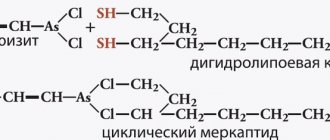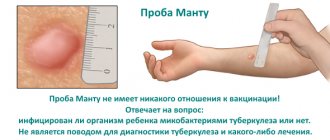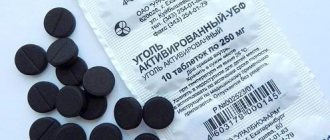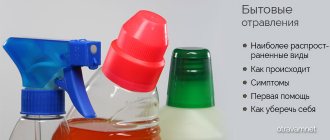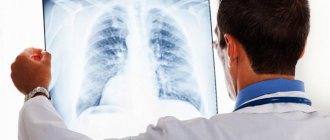Any form of intoxication is accompanied by unpleasant symptoms and can lead to various complications. But not everyone knows what cancer intoxication is.
Poisoning of the body occurs in cancer patients due to the breakdown of products of malignant formation. This condition is typical for late stages of cancer. Doctors say that this is a pattern and a consequence of active anti-cancer therapy.
Cancer intoxication in the later stages is a regularity of the therapy.
Intoxication in cancer
All oncological pathologies without the required and timely treatment in most cases lead to irreparable consequences, which are expressed by severe complications leading to death.
The death of the patient occurs due to the failure of one organ or entire systems, but at the last, that is, terminal stage, another complication dangerous to health occurs. It is directly related to developing cancer. We are talking about tumor intoxication, which is considered one of the syndromes following oncopathies, representing poisoning of the human body with components formed during the process of decay of a cancerous tumor.
A similar condition can also appear due to long-term chemotherapy, since the drugs used in it are highly toxic. As in situations where poisoning was provoked by poisons or heavy metals, this type of intoxication is the main factor in multiple organ damage and a significant weakening of the immune system.
There is no specific ICD code for cancer intoxication, because it is a complex of various symptoms that relate to certain types of tumors. Because of this, symptoms may vary in intensity and time of onset, duration and location of the cancer, as well as the age of the patient.
It is worth noting that the closer the tumor is to particularly important organs, the more severe the terminal stage of development is and the more quickly death can occur from tumor disintegration. How long a patient has left to live can only be determined after a comprehensive examination.
Stages of poisoning progression
At stage 4 of the tumor process, the pathology has nine stages, after which death occurs. They take place in the following sequence:
- The malignant tumor begins to grow uncontrollably.
- Small vessels cannot cope with their function in the area where cancer appears, as the tumor quickly increases in size, which leads to local circulatory disorders and low blood pressure.
- A nutritional deficiency occurs in this area, and the process of cancer cell death begins.
- The process of tumor disintegration begins. All substances enter the body and move throughout the body along with the blood. Thus, gradual poisoning begins.
- The first consequence is metabolic disorders.
- Then kidney failure develops, as the kidneys cannot function normally. This condition occurs due to urine crystals entering them. And dysfunction leads to progressive dehydration of the body.
- Anemia develops rapidly.
- In the end, the patient dies from cancer intoxication. The cause of death is mainly sepsis (blood poisoning) and dysfunction of important organs.
Read also Diarrhea with blood in an adult: causes and treatment
Reasons for appearance
One of the main features of a malignant tumor is its ability to grow rapidly, which cannot be brought under control. As a rule, the rate of increase in vascular patency always lags behind the growth of the tumor. Cancer cells have the ability to survive for a short time during hypoxia, but without normal bleeding, the process of their death will still begin. Massive cell death is a major factor in decay.
Because of this, a huge amount of decay products enter the body, causing metabolic disorders and disruptions in the functioning of various organs and entire systems. Intoxication is considered the main factor in increasing urea concentrations. Urea crystals clog the kidney tubules, causing kidney failure. Due to an increase in the concentration of phosphates, a significant lack of calcium ions appears, which results in dysfunction of the nervous system. High calcium levels have a detrimental effect on the functioning of the heart muscle.
In patients with cancer intoxication, arrhythmia is added to the symptoms; in extremely severe situations, complete cessation of heart function is possible. High levels of free radicals provoke the breakdown of red blood cells and the formation of anemia.
Symptoms of intoxication can manifest themselves differently in each case. The creation of a clinical picture occurs depending on the severity of the person’s condition, the rate of destruction of the tumor, the concentration of dangerous toxins that are in the blood, the location and nature of the course of the oncological disease.
Diet of patients
After surgery, it is important to eat properly to reduce the level of toxins in the body. For cancer it is recommended:
Fresh fruits and vegetables
- drink more fluids;
- eat fruits, berries, herbs and vegetables every day;
- drink natural juices, green and herbal tea, rosehip decoction, still mineral water;
- enrich the diet with protein foods (a large amount of proteins and fats of plant origin helps normalize weight in case of cancer cachexia);
- include in the menu products that increase immunity (honey, royal jelly);
- steam, boil or bake food;
- give up alcohol, spices, fried and spicy foods, processed foods, whole milk, smoked foods, pickles, carbonated drinks and marinades.
The diet is enriched with magnesium, calcium, iodine, zinc, selenium, vitamins, flavonoids, iron, amino acids and polyunsaturated fatty acids. In case of malignant pathology of the digestive organs, the diet should be the most restrictive.
Symptoms of pathology
The most common manifestations of the disease are worsening constant weakness and fatigue, sometimes for no apparent reason.
Patients also experience changes in appearance: weight loss up to cachexia, pale, yellow or sallow skin color, which is complemented by dry skin and mucous membranes. In rare cases, cyanosis of the extremities is possible. In patients with impaired liver function, scleral icterus occurs due to acute poisoning. Symptoms are accompanied by increased sweating, which worsens at night. During a standard survey, a specialist reveals that a rapid decrease in body weight occurred over a short period and was associated with appetite disorders: an inexplicable aversion to food, in particular meat dishes, as well as a perversion of taste preferences. In addition, when the body is intoxicated, signs of oncology are complemented by dyspeptic complications:
- nausea,
- vomiting,
- stool disorders.
Read also Intoxication of the body: manifestations of poisoning and treatment
In addition, the following signs are noted:
- A prolonged increase in body temperature to subfebrile (37.1−38 degrees), in rare cases - to febrile (38−39 degrees). Pain appears in the bones and joints.
- Patients indicate that they have regular migraines and sudden attacks of dizziness.
- When interviewing patients and their close relatives, one can learn that patients are experiencing mental and emotional disorders. You can observe in them: apathy turning into depression, high irritability, emotional lability.
- Sleep cycle disturbances are possible, such as insomnia, shallow sleep, difficulty falling asleep, night or early awakenings. Arrhythmia can be diagnosed no less often.
- With cancer intoxication, the risk of blood clots increases and there is a tendency to develop infectious lesions.
Symptoms of the disease
Typically , intoxication occurs when the tumor reaches a large size . In addition, chemotherapy can put the body into such a state, since the substances used in treatment accumulate in the body gradually. However, reluctance to treat the disease in its final stages can accelerate the growth of education. The main symptoms that are present in patients with different types of cancer are:
- loss of strength and inability to endure any physical activity;
- constant insurmountable weakness and dizziness;
- decline in performance;
- refusal of meat dishes;
- reactions from the gastrointestinal tract: nausea, vomiting, diarrhea, constipation;
- yellowness of the skin;
- loss of appetite;
- exhaustion due to sudden weight loss;
- dry skin;
- increased sweating;
- low-grade fever and fever;
- frequent headaches;
- sleep disorders;
- depressive states.
As for reactions from the immune system, the deterioration of its condition is manifested by frequent colds , which do not go away for a long time and cause complications on the respiratory system.
Diagnosis of poisoning
In general, cancer intoxication does not come as unexpected news to the patient, since it occurs at stages when the presence of cancer has long been known. But sometimes there are cases when a person did not even suspect the appearance of a malignant neoplasm. It begins to grow rapidly, and intoxication is one of the manifestations of growth. To identify the cause of acute poisoning, the following methods are used:
- CT scan.
- Magnetic resonance imaging.
- Clinical blood and urine tests allow you to detect the ingress of decay products and detect poisoning. This pathological process is also characterized by a decrease in the amount of hemoglobin and red blood cells in the blood and an increase in the concentration of protein in the urine. In addition, the study helps to find out the number of leukocytes and erythrocyte sedimentation rate.
- Tumor biopsy.
- Scintigraphy - allows you to detect the presence of a growing tumor.
- The standard ultrasound procedure (ultrasound) will help detect cancer, but for the most accurate result, a histological examination should be performed.
Treatment
First of all, the patient requires pathogenetic therapy aimed at destroying cancer cells. In situations of the development of metastases and large tumor sizes, surgical intervention is required.
In the absence of indicators, chemotherapy and radiation treatment provide an effect. If, as a result of treatment, signs of poisoning of the body are noted, the doctor prescribes additional treatment for cancer intoxication.
The treatment method consists of three stages:
- Removing toxic substances from the blood.
- Correction of metabolic function.
- Symptomatic treatment.
To relieve cancer intoxication, the patient is prescribed a complex of symptomatic treatment.
Table No. 3. Symptomatic treatment of cancer intoxication:
| Appointments | Drugs |
| Antiemetic therapy | Metoclopramide and Domperidone are prescribed in tablet form. If oral administration is not possible, the drug is administered intravenously. |
| Normalization of stool | Cancer patients suffer from frequent constipation, so they are prescribed laxatives: Lactulose, Forlax, Guttalax, Bisacodyl. The drugs can be taken orally or used as suppositories. |
| Enemas | If laxatives are ineffective, enemas are prescribed. They not only allow you to cleanse the intestines, but also help relieve intoxication by removing toxins from the intestines. |
| Removing intoxication | Sorbents are prescribed, such as: Polysorb, Polyphepan, Enterosgel, Activated carbon. Activated carbon is widely used in medicine, the price of which is significantly lower than all other expensive sorbents. |
| Antianemic therapy | In case of severe anemia, antianemic drugs are prescribed: Sorbifer, Durules, Maltofer. If necessary, Erythropoietin is administered intravenously. |
| Analgesic and antipyretic therapy | Paracetamol, Nimesulide, Ketoprofen, Ibuprofen will help to effectively lower the temperature and relieve pain. |
| Sedative therapy | To reduce agitation and irritability, Diazepam, Haloperidol, and Aminazine are prescribed. |
Serious electrolyte disturbances in the blood and severe intoxication are indications for hemodialysis. Note that the instructions for many drugs contain a number of contraindications, so they are taken strictly as prescribed by the doctor.
Important. Good results are achieved by extracorporeal techniques (plasmapheresis, hemosorption), which allow one to cleanse the blood of toxins in a short period of time. In case of renal failure, hemodialysis is used.
In addition to qualified treatment, cancer patients require adequate nutrition.
It is necessary to eat foods containing large quantities of:
- fiber;
- vitamins;
- proteins;
- fats;
- carbohydrates.
Nutrition for cancer patients should be complete and rich in vitamins and microelements.
It is very important to maintain a drinking regime; taking a large amount of liquid allows you to speed up the process of eliminating toxins. We also note that the patient’s psychological mood is an integral part of the treatment. Relatives and friends must gain strength and provide the necessary care and attention.
How to deal with intoxication
Treatment of poisoning due to cancer involves eliminating the malignant neoplasm and metastases, and if it is impossible to surgically remove the neoplasm, then chemotherapy or radiation therapy is performed. Detoxification treatment for oncology is aimed at removing dangerous components from the patient, restoring metabolism and reducing the harmful effects of drugs used in chemotherapy.
Relief from tumor poisoning is carried out in several ways:
- To thin the blood, forced diuresis is used, which is administered intravenously through a dropper along with a large amount of fluid in the form of a glucose solution. After reaching a certain level of water in the body, the patient is prescribed a diuretic medicine. At the same time, the condition of the patient’s respiratory and cardiovascular systems is constantly monitored in order to promptly notice a threat to the patient’s life.
- Another effective detoxification method is the installation of special drainages into the abdominal cavity. On the first day, more than 20 liters of liquid passes through special tubes.
- Intoxication of the body is stopped by taking large quantities of adsorbent drugs.
- In cases where two or more organs have been damaged at once, a blood oxidation technique is used, which is done by injecting sodium hypochloride directly into a vein. A similar treatment option is used for infection with metastases of the liver, kidneys or pancreas.
- Treatment with hemodialysis and hemodiafiltration involves connecting a person to a special device that replaces the patient’s kidneys. This method can replenish lost fluid and completely cleanse the blood. But this method has few indications for use: it is used only when the level of bicarbonates is very low. It should be noted that such filtration is contraindicated at advanced stages of pathology progression.
- If the patient is in a particularly serious condition, he is prescribed a course of Reamberin injections. The main active component in the drug has an antihypothetical and detoxifying effect, and is also able to restore the patient’s acid balance.
- Hemosorption. This is another time-tested method to relieve symptoms of intoxication. The blood passes through a special device with a sorbent, then returns to the vein. This method, like hemodialysis, has many contraindications. It should not be used if a person has internal bleeding, multiple organ failure, severe dehydration, low blood pressure or problems with the heart muscle.
Read also Green feces, causes of occurrence in an adult
Prognosis and prevention
The prognosis for severe or terminal stage cancer cannot be optimistic. If intoxication has begun, then the process of tumor development has begun, and the consequences will be disastrous.
But still, at the terminal stage of most cancer pathologies, it is possible to prolong the patient’s life for some time, so treatment is necessary in any situation, without succumbing to a pessimistic attitude and depression.
To prevent the syndrome, you need to prevent the disease from progressing. To do this, you should eliminate all emerging disorders in a timely manner, undergo regular examinations with a doctor, eat right, engage in only light sports, and get rid of bad habits.
Oncological intoxication is a serious poisoning and metabolic disorder of the body, but it can be successfully treated by modern medicine, so do not despair.


